Who Will Succeed Pope Francis? The Top Five Candidates to Lead the Catholic Church
Pope Francis died on April 21, 2025, at 88, leaving the Catholic Church to choose his successor. As the conclave looms, Cardinals Tagle, Parolin, Turkson, Erdő, and Zuppi emerge as top candidates to lead 1.4 billion Catholics. Who will shape the Church’s future?

The Catholic Church is reeling from the loss of Pope Francis, who passed away on April 21, 2025, at 88, in his residence at Casa Santa Marta, Vatican City. The Vatican confirmed that Francis, born Jorge Mario Bergoglio, died at 7:35 a.m. due to a cerebral stroke that triggered a coma and irreversible heart failure, following a prolonged illness marked by double pneumonia, respiratory issues, and chronic conditions like type 2 diabetes. His death, just a day after a poignant Easter Sunday appearance in St. Peter’s Square, ends a 12-year papacy that redefined the Church through humility, social justice, and progressive reforms.
With the papal seat now vacant—a period known as sede vacante—the College of Cardinals prepares for a conclave to elect the 267th pope. As the world mourns, speculation about Francis’ successor is intensifying, with betting agencies and Vatican analysts pointing to several frontrunners. This article explores the five leading candidates, their qualifications, and the challenges awaiting the next pontiff in guiding 1.4 billion Catholics through a complex global landscape.
The Conclave: A Time-Honored Transition
The sede vacante period begins with formalities overseen by Cardinal Kevin Farrell, the Camerlengo, who has verified Francis’ death. Pope Francis’ body will lie in state at St. Peter’s Basilica for three days, starting around April 23, followed by a funeral Mass within four to six days. Per his 2022 will, Francis requested burial in a simple underground tomb at the Basilica of Santa Maria Maggiore in Rome, a departure from tradition.
The conclave, set to start no earlier than mid-May 2025, will involve cardinals under 80 voting in the Sistine Chapel. A two-thirds majority is needed to elect the pope, a decision shaped by theological priorities, global Catholic demographics, and pressing issues like secularization, climate change, and Church unity. Francis’ legacy—marked by inclusivity, environmental advocacy, and peace efforts, including his calls for a Gaza ceasefire—sets a high bar for his successor. Below are the five cardinals most likely to lead the Church forward.
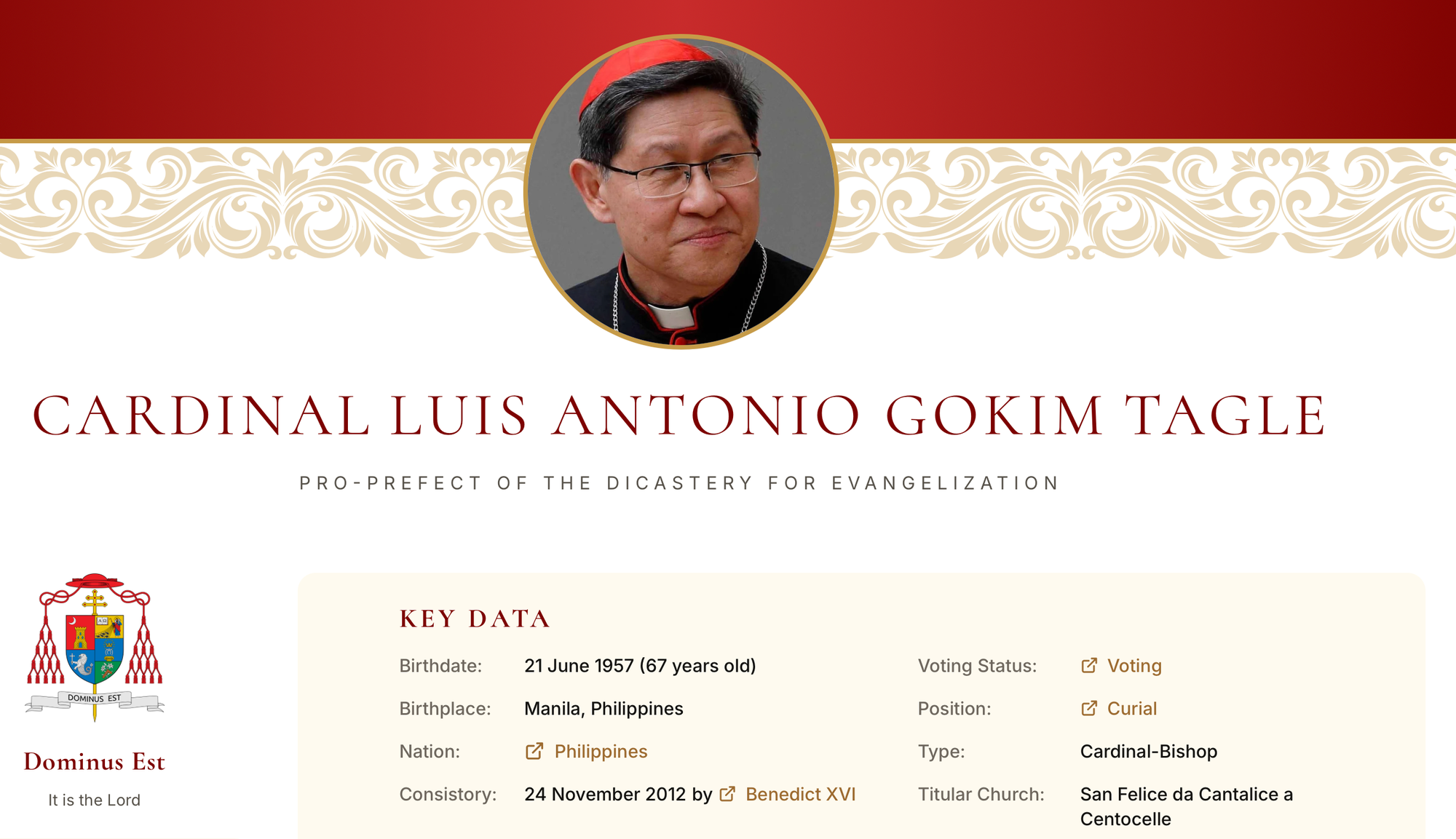
1. Cardinal Luis Antonio Tagle (Philippines)
Cardinal Luis Antonio Tagle, 67, is the leading contender, with betting odds of 3:1. Known as the “Asian Francis,” Tagle mirrors the late pope’s progressive vision, emphasizing inclusion and evangelization. As Pro-Prefect of the Dicastery for Evangelization and former Archbishop of Manila, he blends Vatican experience with pastoral charisma.
Tagle’s emotional preaching a media presence resonate globally, especially in Asia, where Catholicism is surging. The Philippines’ 80 million Catholics could see their first pope, a historic milestone. However, his liberal stance may clash with conservative cardinals, and his youth could raise concerns about a long papacy. Still, Asia’s growing influence makes Tagle a formidable candidate.
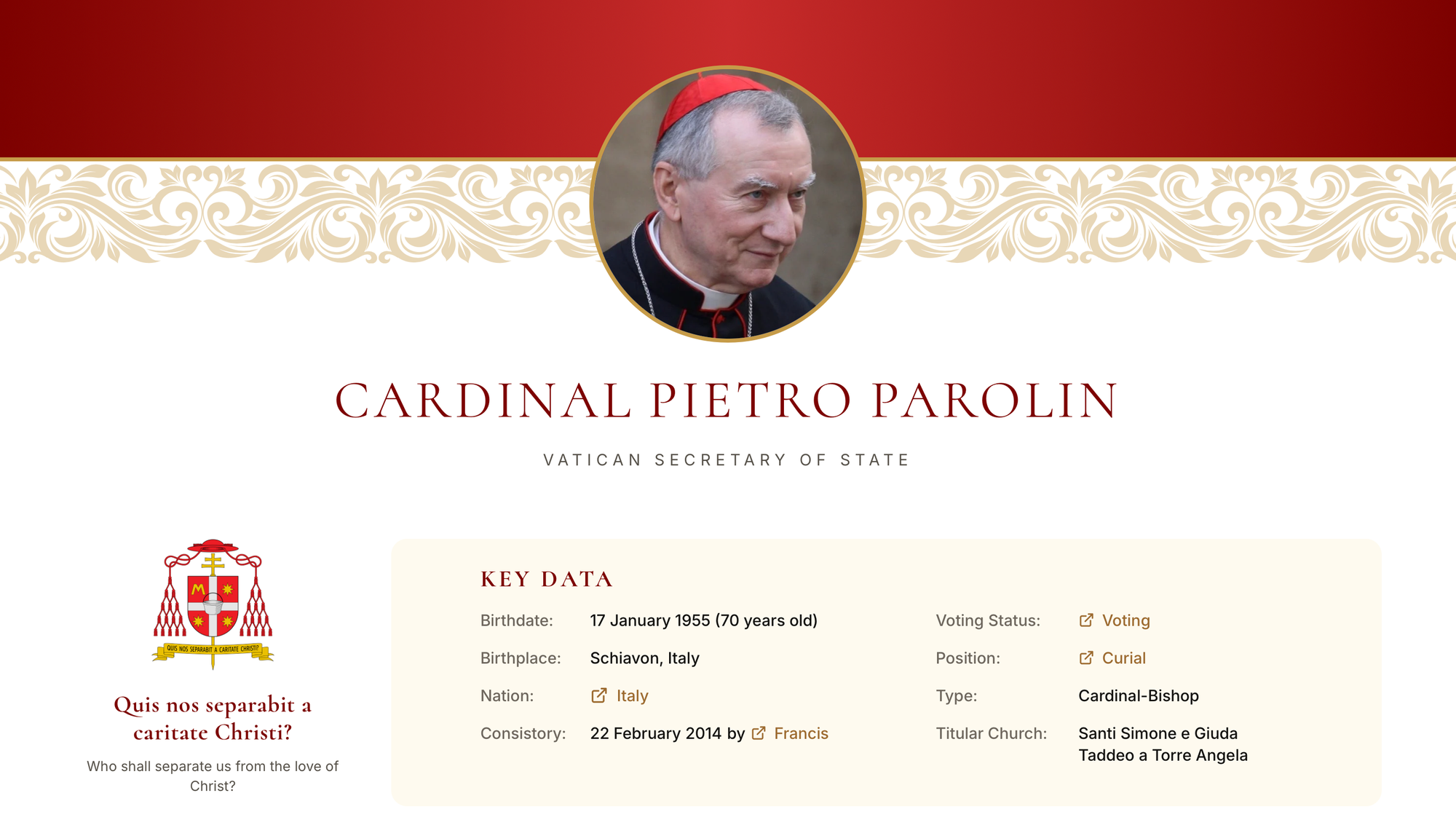
2. Cardinal Pietro Parolin (Italy)
Cardinal Pietro Parolin, 70, is the Vatican’s Secretary of State and a diplomatic heavyweight. Having served as Francis’ closest aide, Parolin has tackled issues like Vatican-China relations and global conflicts. His Italian heritage aligns with the Church’s historical preference for European popes, and his moderate views could unify factions.
Parolin’s administrative expertise ensures continuity, but his reserved style lacks the pastoral flair of Tagle or Francis. His deep Vatican ties and diplomatic finesse, however, position him as a safe, steady choice for cardinals seeking stability in turbulent times.
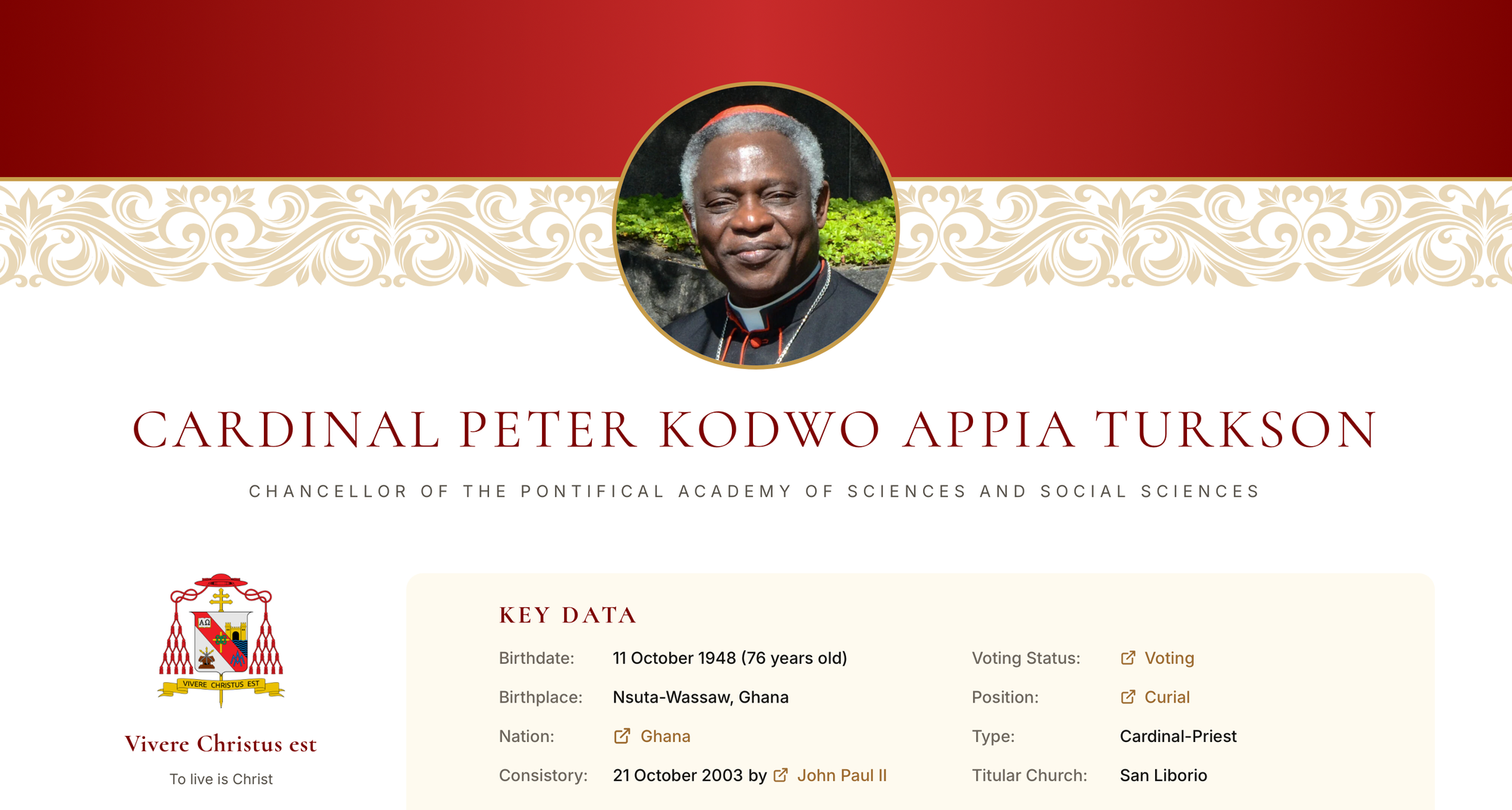
3. Cardinal Peter Turkson (Ghana)
Cardinal Peter Turkson, 76, embodies the rise of African Catholicism, with over 230 million Catholics on the continent. As Chancellor of the Pontifical Academy of Sciences and former head of the Pontifical Council for Justice and Peace, Turkson has championed social justice and environmental causes, echoing Francis’ priorities.
An African pope would reflect the Church’s shifting demographics, potentially energizing millions. Turkson’s global experience is a strength, but his age and past communication missteps could deter some cardinals. Despite historical Eurocentrism, Africa’s momentum makes Turkson a serious contender.
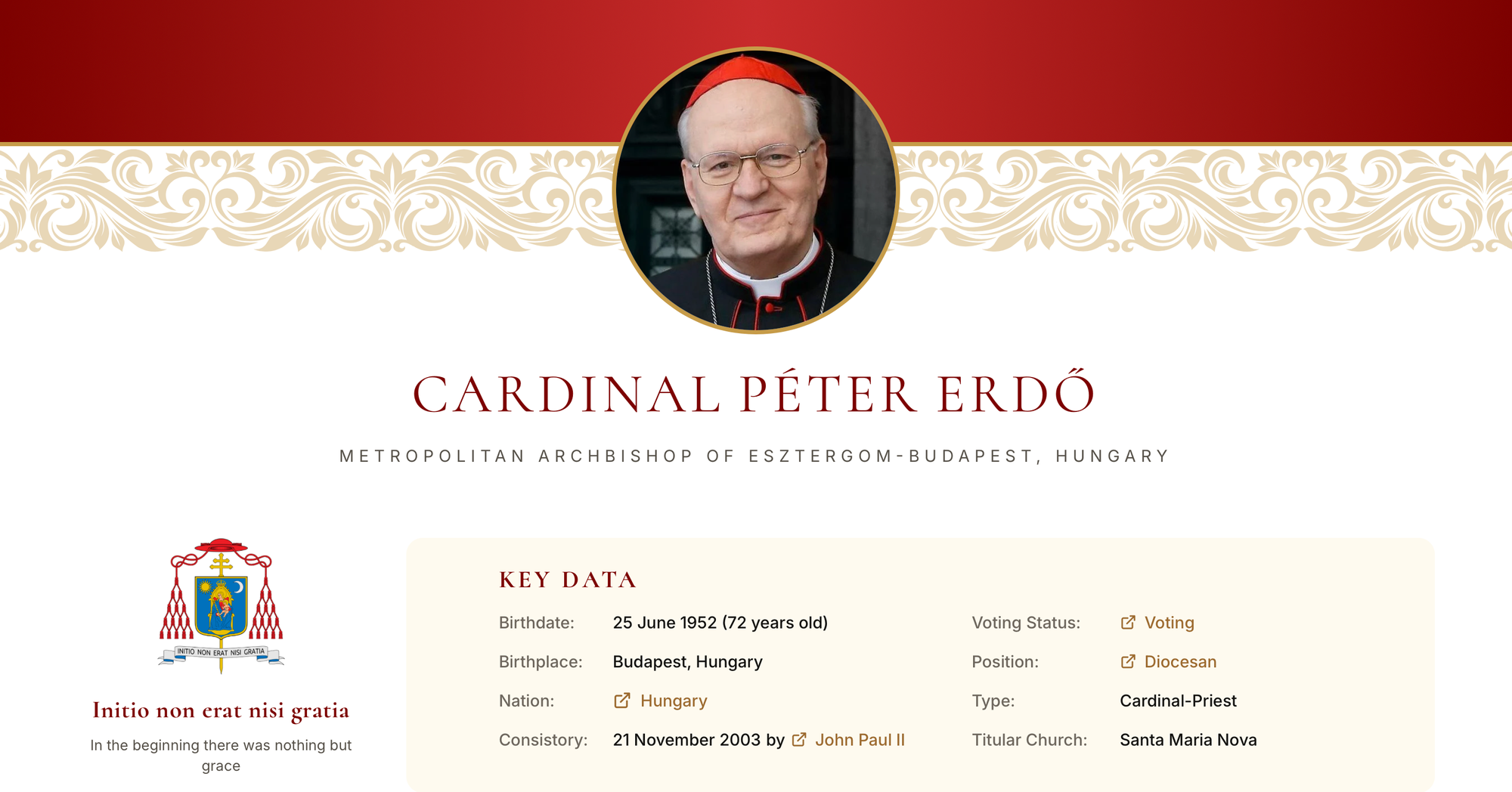
4. Cardinal Péter Erdő (Hungary)
Cardinal Péter Erdő, 72, is a dark horse from Eastern Europe. As Archbishop of Esztergom-Budapest, Erdő has navigated Hungary’s complex political landscape. His expertise in canon law and leadership in European episcopal conferences highlight his intellectual and organizational skills.
Erdő’s conservative leanings appeal to traditionalists wary of Francis’ reforms, though his pastoral approach softens his stance. Hungary’s small Catholic population (3.9 million) and Erdő’s lower global profile may limit his chances, but his steady leadership keeps him in the race.
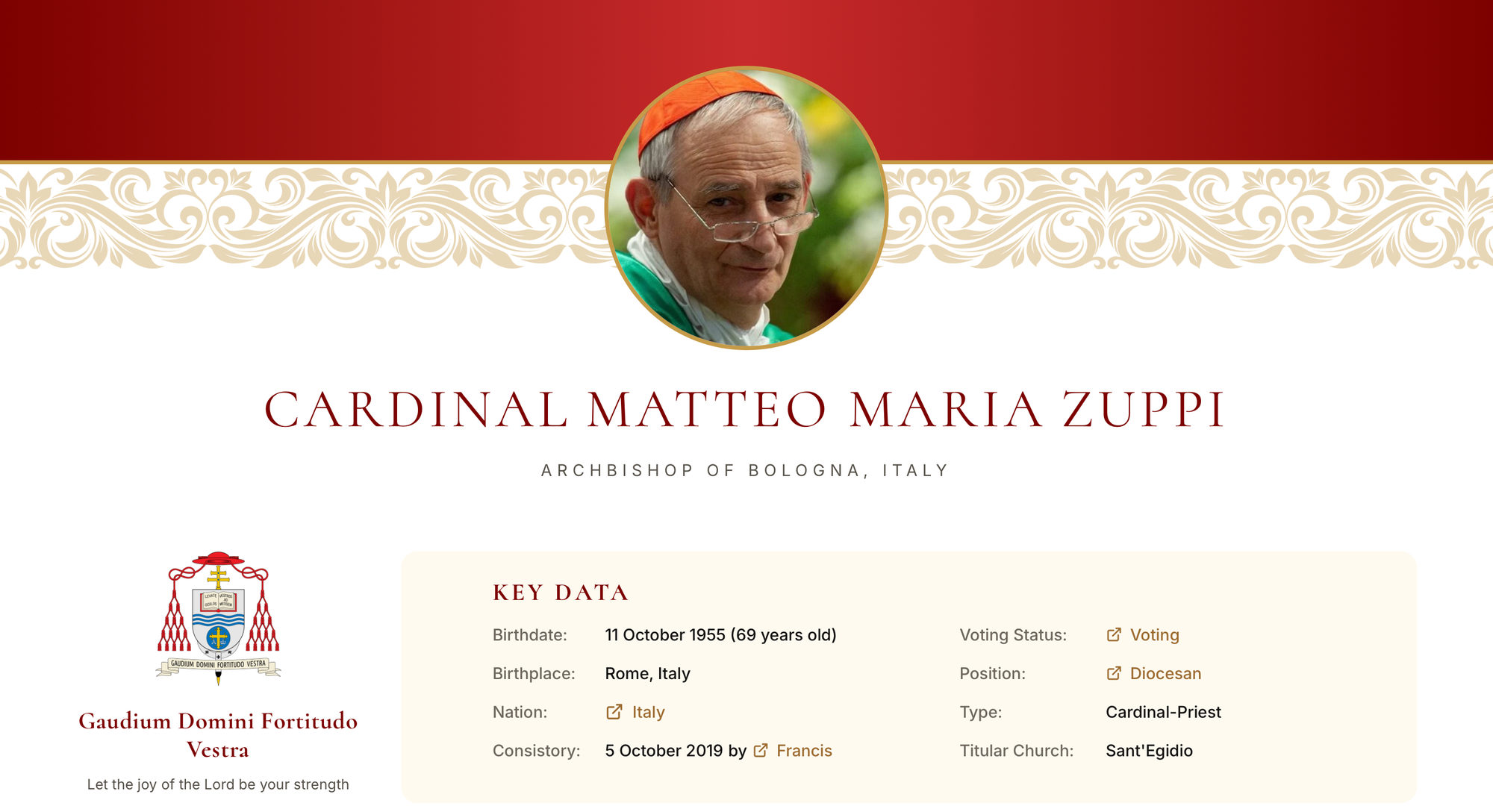
5. Cardinal Matteo Zuppi (Italy)
Cardinal Matteo Zuppi, 69, is a progressive Italian with a pastoral focus. As Archbishop of Bologna and president of the Italian Bishops’ Conference, Zuppi has advanced Francis’ vision of a Church for the marginalized. His work with the Community of Sant’Egidio, known for peacebuilding, underscores his social activism.
Zuppi’s Italian roots and liberal credentials could reinforce Francis’ legacy while restoring an Italian papacy. His limited Vatican experience may concern traditionalists, but his warmth and engagement make him a dynamic candidate.
Challenges for the Next Pope
The next pope will inherit a Church at a crossroads. Francis’ progressive reforms, including his outreach to the LGBTQ+ community and emphasis on environmental stewardship, have sparked both admiration and division. The new pontiff must address declining vocations in Europe, the growth of Catholicism in Africa and Asia, and global issues like interfaith dialogue and economic inequality.
Francis’ death has elicited tributes from world leaders, with U.S. President Joe Biden praising his moral leadership and Brazilian President Luiz Inácio Lula da Silva lauding his advocacy for the poor. Yet, polarized reactions, such as U.S. Representative Marjorie Taylor Greene’s controversial post, reflect the challenges of unifying a diverse Church.
Today there were major shifts in global leaderships.
— Marjorie Taylor Greene 🇺🇸 (@mtgreenee) April 21, 2025
Evil is being defeated by the hand of God.
The conclave’s outcome, guided by prayer and deliberation, will shape Catholicism’s future. Will the cardinals choose a progressive like Tagle or Zuppi to continue Francis’ path, a diplomat like Parolin for stability, or a figure like Turkson or Erdő to signal a new direction? The white smoke from the Sistine Chapel will soon reveal the answer.
Pope Francis’ death marks the end of a transformative era, leaving the Catholic Church to chart its next chapter. Cardinals Tagle, Parolin, Turkson, Erdő, and Zuppi stand out as the top candidates, each offering a unique vision for the papacy. As the conclave approaches, the world awaits the election of a leader to guide the Church through an era of change and challenge.


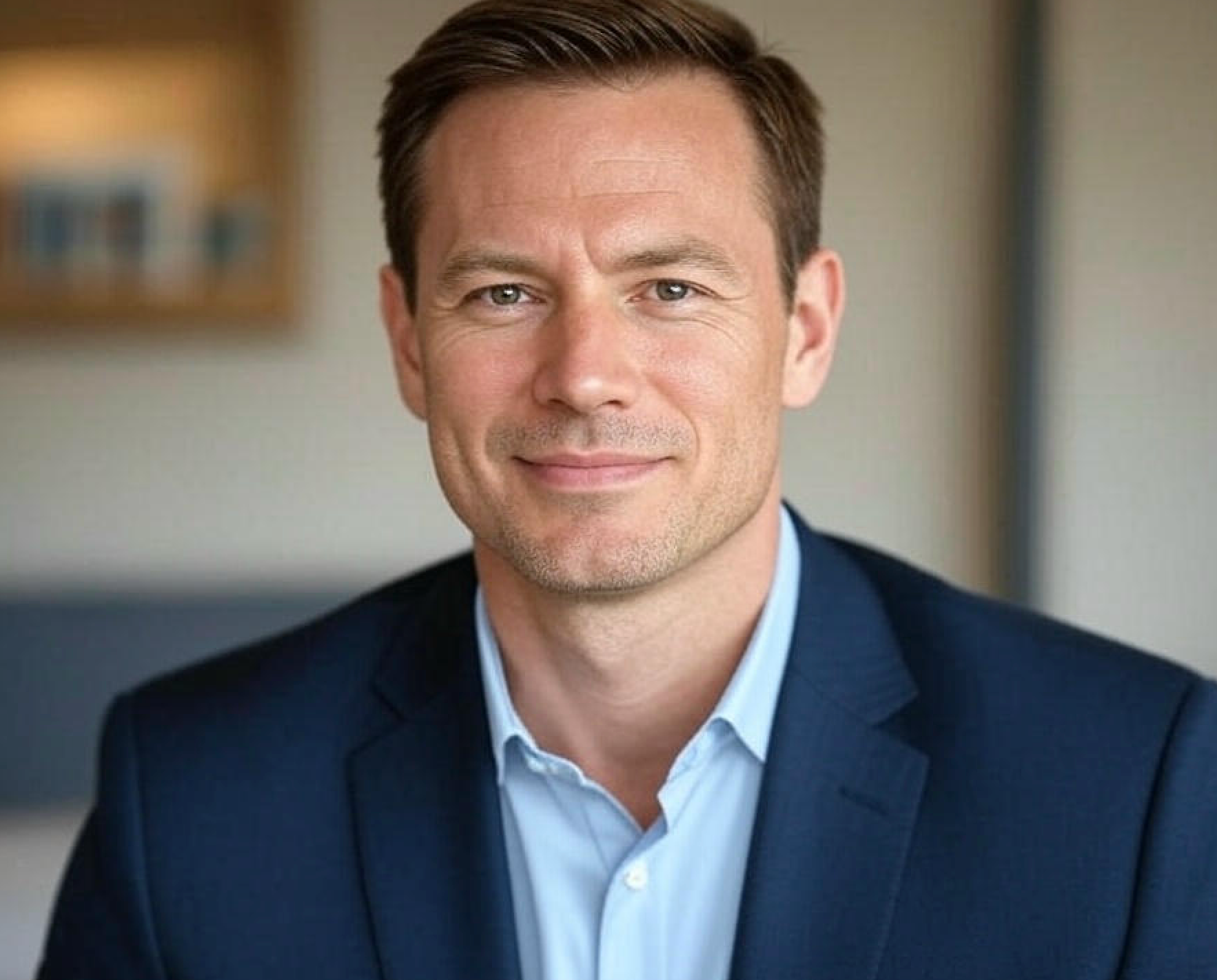
Discussion